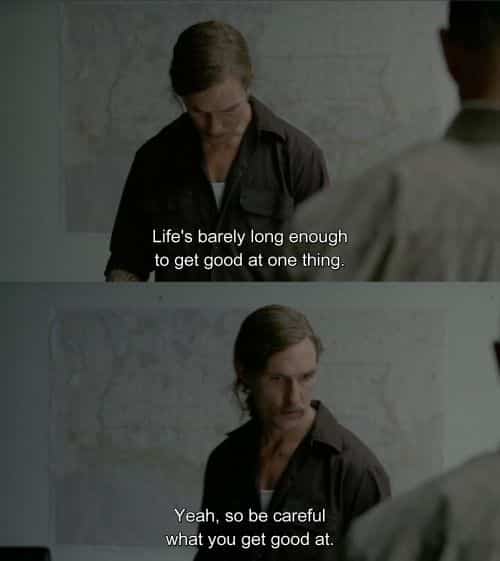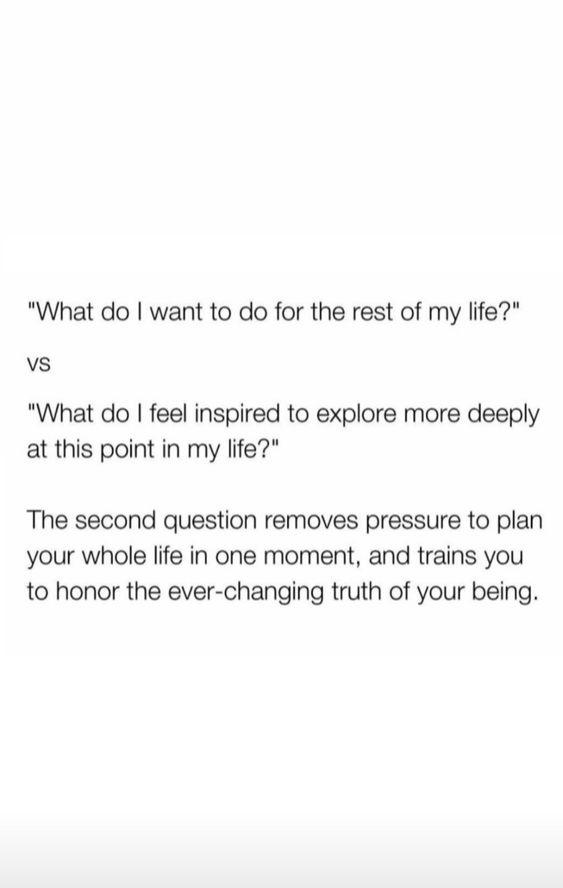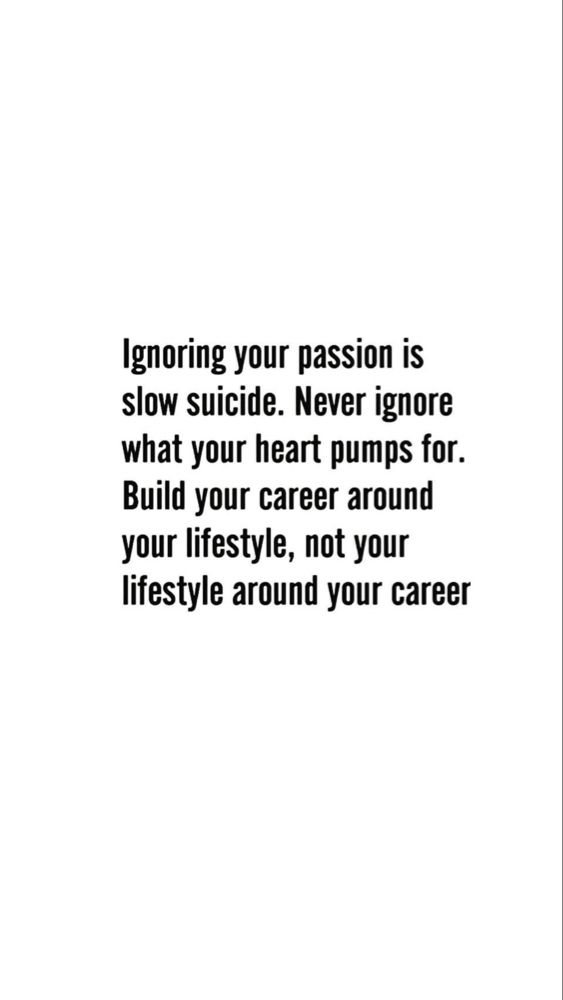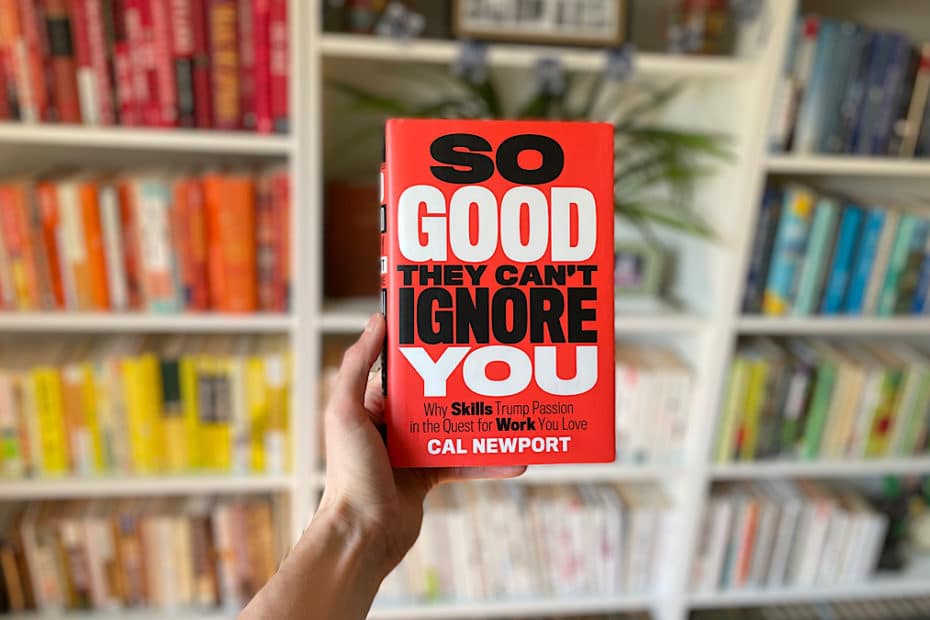“Work is love made visible.
Kahlil Gibran, The Prophet (Page 26)
And if you cannot work with love but only with distaste, it is better that you should leave your work and sit at the gate of the temple and take alms of those who work with joy.
For if you bake bread with indifference, you bake a bitter bread that feeds but half man’s hunger.
And if you grudge the crushing of the grapes, your grudge distils a poison in the wine. And if you sing though as angels, and love not the singing, you muffle man’s ears to the voices of the day and the voices of the night.”
“Fall in love with some activity, and do it! Nobody ever figures out what life is all about, and it doesn’t matter. Explore the world. Nearly everything is really interesting if you go into it deeply enough. Work as hard and as much as you want to on the things you like to do the best. Don’t think about what you want to be, but what you want to do. Keep up some kind of a minimum with other things so that society doesn’t stop you from doing anything at all.”
Richard Feynman
“By applying tougher criteria we can tap into our brain’s sophisticated search engine. If we search for ‘a good opportunity,’ then we will find scores of pages for us to think about and work through. Instead, we can conduct an advanced search and ask three questions: ‘What do I feel deeply inspired by?’ and ‘What am I particularly talented at?’ and ‘What meets a significant need in the world?’ Naturally there won’t be as many pages to view, but this is the point of the exercise. We aren’t looking for a plethora of good things to do. We are looking for our highest level of contribution: the right thing the right way at the right time.”
Greg McKeown, Essentialism (Page 22)
“Your profession should only be one part of life. It should not overlap into every dimension of your life, as ordinarily it does. A doctor becomes almost a twenty-four-hour doctor. He thinks about it, he talks about it. Even when he is eating, he is a doctor. While he is making love, he is a doctor. Then it is madness; it is insane. My suggestion is that you work for five or six hours. Use the remaining hours for other things: for sleep, for music, for poetry, for meditation, for love, or for just fooling around. That too is needed. If a person becomes too wise and cannot fool around, he becomes heavy, somber, serious. He misses life.”
Osho, Everyday Osho (Page 87)
“We’ve already seen occupations like typesetting, switchboard operation, data entry, travel planning, and even retail sales dwindle or become obsolete, and technology will continue to replace manual work with machines. We need equitable retraining solutions for people who lose their livelihoods, but otherwise, this is a good change. The vast majority of people have more to offer than pressing buttons or sorting widgets. We need their contributions.”
Aytekin Tank, Automate Your Busywork (Page 158)
“If you’re sticking with a job, even though it’s making you miserable, because you think that grit is the same thing as character and that it is weak-willed to walk away from something—the problem is you forget that you’ll be walking towards something. And the thing that you would be walking towards could actually be a lot better. And so sticking has the associative cost of not just the misery you’re currently feeling in that horrible job but also all the happiness you could be gaining from the other things you could be doing.”
Annie Duke
“Practical knowledge is the ultimate commodity and is what will pay you dividends for decades to come—far more than the paltry increase in pay you might receive at some seemingly lucrative position that offers fewer learning opportunities.”
Robert Greene, The Daily Laws (Page 53)
“Work is life. Not having something to do with one’s life, something important or unique to your talents or however you put it, is a bigger killer than cancer.”
Ray Mungo, via Sunbeams (Page 138)
12 Cal Newport Quotes from ‘So Good They Can’t Ignore You’
Excerpt: Follow your passion is bad advice. Read these powerful Cal Newport quotes from ‘So Good They Can’t Ignore You’ and find out why…
Read More »12 Cal Newport Quotes from ‘So Good They Can’t Ignore You’
“The more you try to force it, I learned, the less likely you are to succeed. True missions, it turns out, require two things. First you need career capital, which requires patience. Second, you need to be ceaselessly scanning your always-changing view of the adjacent possible in your field, looking for the next big idea. This requires a dedication to brainstorming and exposure to new ideas. Combined, these two commitments describe a lifestyle, not a series of steps that automatically spit out a mission when completed.”
Cal Newport, So Good They Can’t Ignore You
“Compelling careers often have complex origins that reject the simple idea that all you have to do is follow your passion.”
Cal Newport, So Good They Can’t Ignore You
“If your goal is to love what you do, you must first build up ‘career capital’ by mastering rare and valuable skills, and then cash in this capital for the traits that define great work.”
Cal Newport, So Good They Can’t Ignore You
“If you want to love what you do, abandon the passion mindset (‘what can the world offer me?’) and instead adopt the craftsman mindset (‘what can I offer the world?’).”
Cal Newport, So Good They Can’t Ignore You
“Don’t obsess over discovering your true calling. Instead, master rare and valuable skills. Once you build up the career capitol that these skills generate, invest it wisely. Use it to acquire control over what you do and how you do it, and identify and act on a life-changing mission. This philosophy is less sexy than the fantasy of dropping everything to go live among the monks in the mountains, but it’s also a philosophy that has been shown time and again to actually work.”
Cal Newport, So Good They Can’t Ignore You (Page 230)
“Working right trumps finding the right work. He didn’t need to have a perfect job to find occupational happiness—he needed instead a better approach to the work already available to him.”
Cal Newport, So Good They Can’t Ignore You (Page 228)
“People who feel like their careers truly matter are more satisfied with their working lives, and they’re also more resistant to the strain of hard work. Staying up late to save your corporate litigation client a few extra million dollars can be draining, but staying up late to help cure an ancient disease can leave you more energized than when you started—perhaps even providing the extra enthusiasm needed to start a lab volleyball team or tour with a rock band.”
Cal Newport, So Good They Can’t Ignore You (Page 152)
“If you want something that’s both rare and valuable, you need something rare and valuable to offer in return—this is Supply and Demand 101. If follows that if you want a great job, you need something of great value to offer in return.”
Cal Newport, So Good They Can’t Ignore You (Page 44)



